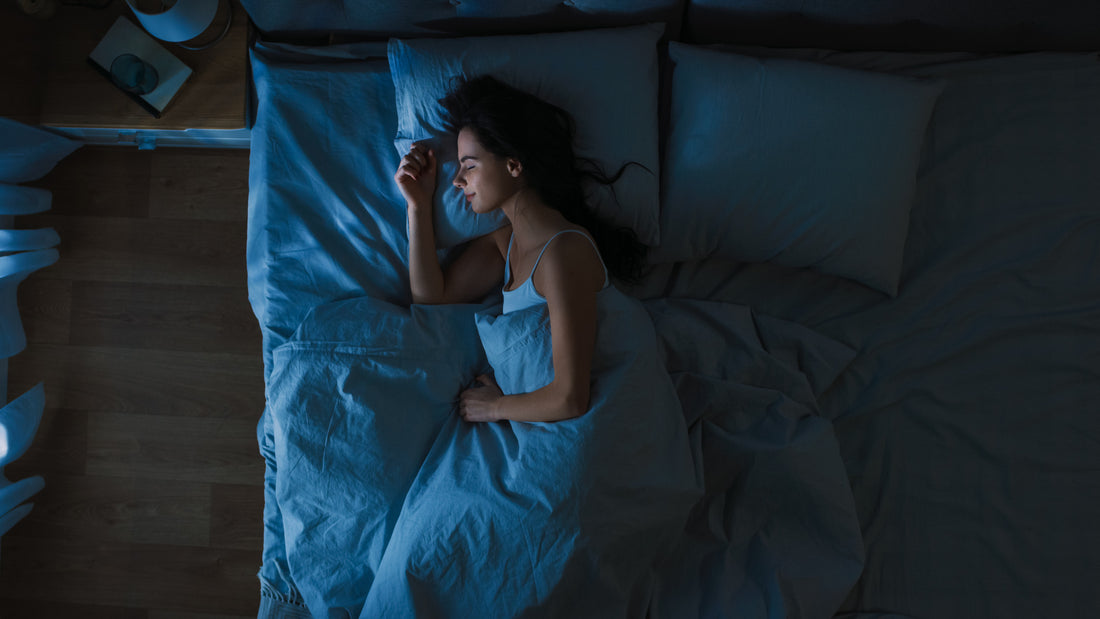
How to Improve Your Sleep When You're Stressed
Share
Most active adults would agree: life, in general, comes with plenty of stressors. Balancing our professional, family, and personal lives represents a challenge at the best of times. Today, we find our stress levels multiplying while we fight a once-in-a-century pandemic.
Though many of us may find ourselves curled up under the covers as we shelter in place, that doesn't necessarily equate to better sleep. When we experience stress, our sleep becomes one of the necessities of life to suffer.
And, yes, we do need sleep. A recent Harvard study makes clear the importance of good quality sleep as it points out issues we face when our rest suffers:
-
Cognitive functions, including memory and learning abilities, decline with inadequate sleep.
-
Lack of adequate sleep contributes to heart disease.
-
Compromised sleep leads to depression, anxiety, and other mood disorders.
-
Poor sleep slows down metabolism, which contributes to weight gain.
-
Inadequate sleep may cause safety concerns, especially when driving or operating machinery.
Unhealthy Ways of Coping with Stress Lead to Poor Quality Sleep
When it comes to handling stress, many people react conversely. Now, with more people under pressure than ever, we see memes on social media involving lousy health habits that provide material for somewhat amusing Facebook posts. Not so funny, however, is the reality that the following practices feed into the problem of poor sleep quality. Curtailing the habits below will most likely improve your sleep and your health in general:
-
Drinking caffeine either in the form of coffee or cola throughout the day
-
Overeating and empty calories
-
Overindulging in alcohol
-
Spending too much time on our computers and smartphones
-
Viewing excessive amounts of violent or disturbing television
Once we recognize these habits, it becomes possible to stop or at least reduce them.
Health Practices for Better Sleep
Not surprisingly, the suggestions to obtain better sleep represent the opposite of the practices that cause poor sleep. Consider these guidelines to get the most out of bedtime.
-
Eat a balanced diet, and avoid eating two to three hours before bedtime.
-
Exercise daily. You don't need to join a gym, but go for walks or do video workouts. You can also try yoga or relaxing stretches.
-
Create a comfortable and healthy bedroom.
-
Develop a relaxing bedtime routine. Story and bath time works for our kids just as much as it works for us adults.
-
Enjoy some herbal tea.
-
Limit alcoholic beverages in general and avoid them two hours before bedtime.
-
Limit caffeine and avoid it entirely in the afternoon and evening.
-
Avoid too much television and screen time at least a half an hour before bed. It’s good to stay informed, but don't immerse yourself in too much bad news.
A Word About Sleeping Aids
Though the occasional use of over-the-counter and prescription sleeping aids may sometimes make up part of the picture for a good night's sleep, it’s important to understand ‘occasional’ is the keyword. Frequent use of these drugs comes with detrimental side effects and can also become habit-forming. Even medicines that control pain, such as Ibuprofen, may cause liver or kidney damage over time.
Developing Healthy Sleep Habits Takes Time
Consider developing better habits to improve your sleep. Don't expect one night of chamomile tea and yoga to solve your problem. Give a healthy routine a significant chance before turning to sleep aids.
Of course, the quality of your mattress and what you put on top of it influences your sleep. We offer high-quality sheets and bedding to lull you into restfulness. For more information about achieving your best sleep, contact us here.
